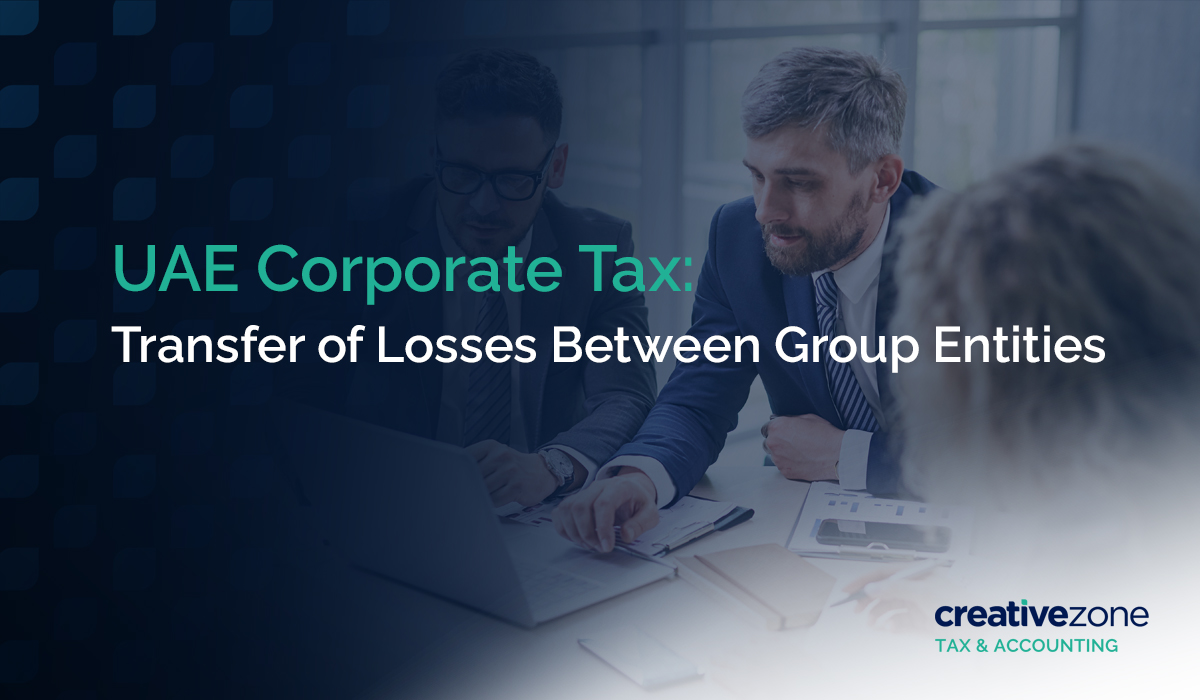
An insight into the potential corporate tax regime (“CT”) has been provided by the UAE Ministry of Finance (“MoF”) on April 28th. The consultation paper discusses these insights. Please note that the information shared in the consultation is not final. Public consultations support transparency in the UAE and recognize stakeholder input as crucial to a successful project. The consultation also talks about group tax relief and loss transfer reform in the UAE.
Transfers of assets and liabilities between group entities could result in tax relief for the group entities. An entity with 95 percent ownership qualifies as a single entity for tax purposes. It is possible to transfer losses between group companies. A company must own at least 75 percent of its assets and liabilities to claim tax relief. Each of the group companies should hold at least 75 percent of the shares of all other group companies.
Transfer of losses
Transfer of losses from one group company to another group company is possible for group entities that do not meet 95 per cent ownership criteria. This is because they do not wish to be a member of the tax group. There must be at least 75% common ownership among UAE resident group companies, and the company’s income cannot be subject to zero corporate tax.
Relief from transfers of assets and liabilities
Assets and liabilities between the group entities will be under common major ownership. Transferring assets or liabilities within the group would not affect major ownership, regardless of the transfer between group entities.
Transfers between group entities with 75 percent common ownership will not result in gains or losses. A minimum of three years must pass after transferring assets or liabilities to qualify for intra-group relief.
In the case of intra-group relief claims, what to look out for? Any transfers of assets between the group entities (75 per cent common ownership) would occur at the tax net book value. Thus, the transferor and transferee would not have any gain or loss on their books. Transferee books would include these assets and liabilities at the same value as the books of the transferor.
What is the tax net book value?
Tax net book value for physical assets, such as plants and machinery, is equal to the allowable cost less depreciation accumulated over time. Accounting depreciation shall not be considered during the calculation of the tax net book value; only tax depreciation shall be considered.
Tax depreciation and allowable cost are critical terms. The possibility exists that there might be some assets that are not at all used for business purposes, or that some assets might be used both for business and non-business purposes together. For tax purposes, we expect that the upcoming corporate tax law will allow dual use of assets and only business use will be allowed. The calculation of tax net book value is based on business usage and related depreciation.
Assets within a group can have mixed-use characteristics and they can also move between entities. The new use of such assets will determine how corporate tax is applicable to the transfer. There can be a transfer of assets between group entities with and without business use. However, we need to wait for the law and regulations to provide us with complete guidance.
In some cases, businesses cannot claim tax relief. One such case involves moving assets and liabilities into the group company for less than three years. What about selling assets to a third party with less than 75 per cent common ownership? The transferor would include the gain or loss that arises at the time of transfer on its tax return.
Restructuring relief
During business, mergers, spin-offs, and other forms of restructuring occur. As proposed by the UAE corporate tax regime, the UAE corporate tax regime will exempt or allow deferral of tax on such transfers of shares or other ownership interests. This will be for the whole business or part of it. There must be no further transfers within three years of the date of the first transfer. Whenever a transfer occurs, the transferor and transferee’s books shall adjust to the tax net book value, so profit and loss will not occur.
Will there be a clawback of restructuring relief? Yes, if any part of the business, or the business itself, changes hands within three years of the original transfer date for the business, or an independent part of the business. During the initial transfer, any gains or losses would have been calculated. When transferring a business to a third party, the tax return for that tax period reflects the transfer.
It is prudent that businesses claim tax relief on assets, liabilities, whole businesses or independent parts of businesses before further transferring them.
Takeaways
Here are some key takeaways you might want to consider:
- Analyze how businesses in a Free Zone interact with those on the UAE mainland. Based on your current operating model, how will this impact your business?
- Provide valuable insights to stakeholders and the implications of the consultation paper for your business (accounting, compliance, tax function setup, etc.).
- Accounting for temporary differences that will result from unrealized gains and losses that cannot be included in the tax computation.
How can we help?
A lot of UAE businesses will face a difficult journey across unfamiliar terrain as they prepare for, and comply with, the new federal corporate income tax. Despite much ambiguity, UAE Corporate Tax will affect business plans, strategies, and legal agreements.
As your local experts, we know what you can expect from the final law, and how it will affect the operation of your entire business. Taking advantage of tax relief is one of the most important things your UAE business can do to survive and thrive. And Creative Zone Tax & Accounting can certainly help with that!
Tax Experts at Creative Zone Tax & Accounting can help your UAE business take advantage of tax relief.
